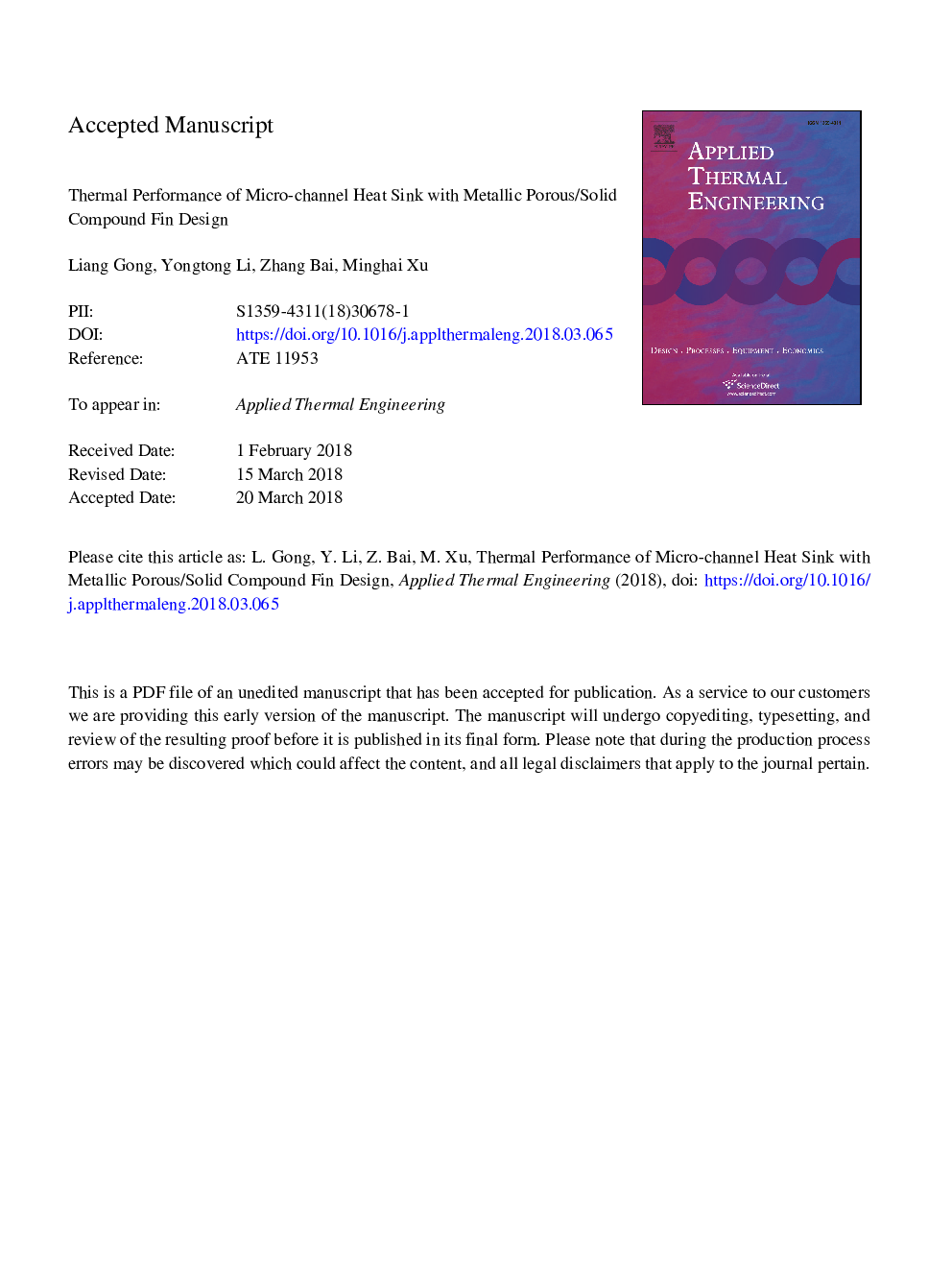| Article ID | Journal | Published Year | Pages | File Type |
|---|---|---|---|---|
| 7045420 | Applied Thermal Engineering | 2018 | 30 Pages |
Abstract
Rapid development of large-scale integrations of electronic circuits resulted in increasing requirements for chip power dissipation. In this study, a concept of micro-channel heat sink with the metallic porous/solid compound fin design was developed and numerically investigated. Computational investigations were carried out to analyze the effects of metallic porous fins on the hydraulic and thermal performances, and to determine the optimal dimensionless porous fin thickness for designing the porous/solid compound fins. The traditional solid fin heat sink is selected as the comparison model. The results indicate that the viscous shear stress is reduced at the fluid and porous fin interfaces, which leads to decreased pressure drop through the porous fin heat sink. Whereas, the heat transfer performance deteriorates when the solid fins are completely replaced by the porous fins. The novel design of porous/solid compound fin demonstrates more favorable in the hydraulic and thermal performances. Both the pressure drop and the overall thermal resistance are substantially decreased, and the optimal dimensionless porous fin thickness for the compound fin heat sink is approximately 0.2. The presented compound fin heat sink is capable of effectively enhancing the cooling performance for high-powered electronics.
Related Topics
Physical Sciences and Engineering
Chemical Engineering
Fluid Flow and Transfer Processes
Authors
Liang Gong, Yongtong Li, Zhang Bai, Minghai Xu,
